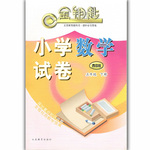题目内容
5.Getting rid of dirt,in the opinion of most people,is a good thing.However,there is nothing fixed about attitudes to dirt.In the early 16th century,people thought that dirt on the skin was a means to block out disease,as medical opinion had it that washing off dirt with hot water could open up the skin and let ills in.A particular danger was thought to lie in public baths.By 1538,the French king had closed the bath houses in his kingdom.So did the king of England in 1546.Thus began a long time when the rich and the poor in Europe lived with dirt in a friendly way.Henry IV,king of France,was famously dirty.Upon learning that a nobleman had taken a bath,the king ordered that,to avoid the attack of disease,the nobleman should not go out.
Though the belief in the merit of dirt was long-lived,dirt has no longer been regarded as a nice neighbor ever since the 18th century.Scientifically speaking,cleaning away dirt is good to health.Clean water supply and hand washing are practical means of preventing disease.Yet,it seems that standards of cleanliness have moved beyond science since World War II.Advertisements repeatedly sell the idea:clothes need to be whiter than white,cloths ever softer,surfaces to shine.Has the hate for dirt,however,gone too far?
Attitudes to dirt still differ hugely nowadays.Many first-time parents nervously try to warn their children off touching dirt,which might be responsible for the spread of disease.On the contrary,Mary Ruebush,an American immunologist (免疫学家),encourages children to play in the dirt to build up a strong immune system.And the latter position is gaining some ground.
47.The kings of France and England in the 16th century closed bath houses becauseC.
A.they lived healthily in a dirty environment
B.they thought bath houses were too dirty to stay in
C.they believed disease could be spread in public baths
D.they considered bathing as the cause of skin disease
48.Which of the following best describes Henry IV's attitude to bathing?A
A.Afraid B.Curious C.Approving D.Uninterested
49.How does the passage mainly develop?C
A.By providing examples.
B.By making comparisons.
C.By following the order of time.
D.By following the order of importance.
50.What is the author's purpose in writing the passage?D
A.To stress the role of dirt.
B.To introduce the history of dirt.
C.To call attention to the danger of dirt.
D.To present the change of views on dirt.
分析 文章大意:本文主要讲述的是在历史的发展过程中,人们对于灰尘的看法是在不停地发生着变化.
解答 47.C 细节理解题.根据第二段第2、3行as medical opinion had it that washing off dirt with hot water could open up the skin and let ills in.A particular danger was thought to lie in public baths.说明他们认为在浴室里还传染疾病的,所以才下令关闭浴室.故选C.
48.A 推理判断题.根据第二段最后3行Henry IV,King of France,was famously dirty.Upon learning that a nobleman had taken a bath,the king ordered that,to avoid the attack of disease,the nobleman should not go out.说明他很害怕疾病的传播,所以才把这位贵族驱逐出去,故选A.
49.C 推理判断题.根据第二段In the early 16th century和 did the king of England in 1546.以及Henry IV,King of France,was famously dirty.说明本文是按照时间的顺序来组织全文的.故选C.
50.D 主旨大意题.根据文章主题段第一段Getting rid of dirt,in the opinion of most people,is a good thing.However,there is nothing fixed about attitudes to dirt.和最后一段Attitudes to dirt still differ hugely nowadays.Many first-time parents nervously try to warn their children off touching dirt,which might be responsible for the spread of disease.都说明人们对于dirt的看法是在不停地变化之中的,故选D.
点评 本题是社会生活类阅读理解.这类题材的阅读理解是高考常考内容,他注重考查考生整体把握文章大意的能力,因此要求考生平时加强训练,做题时还要结合语境以及题目要求作出正确的判断.

 金钥匙试卷系列答案
金钥匙试卷系列答案